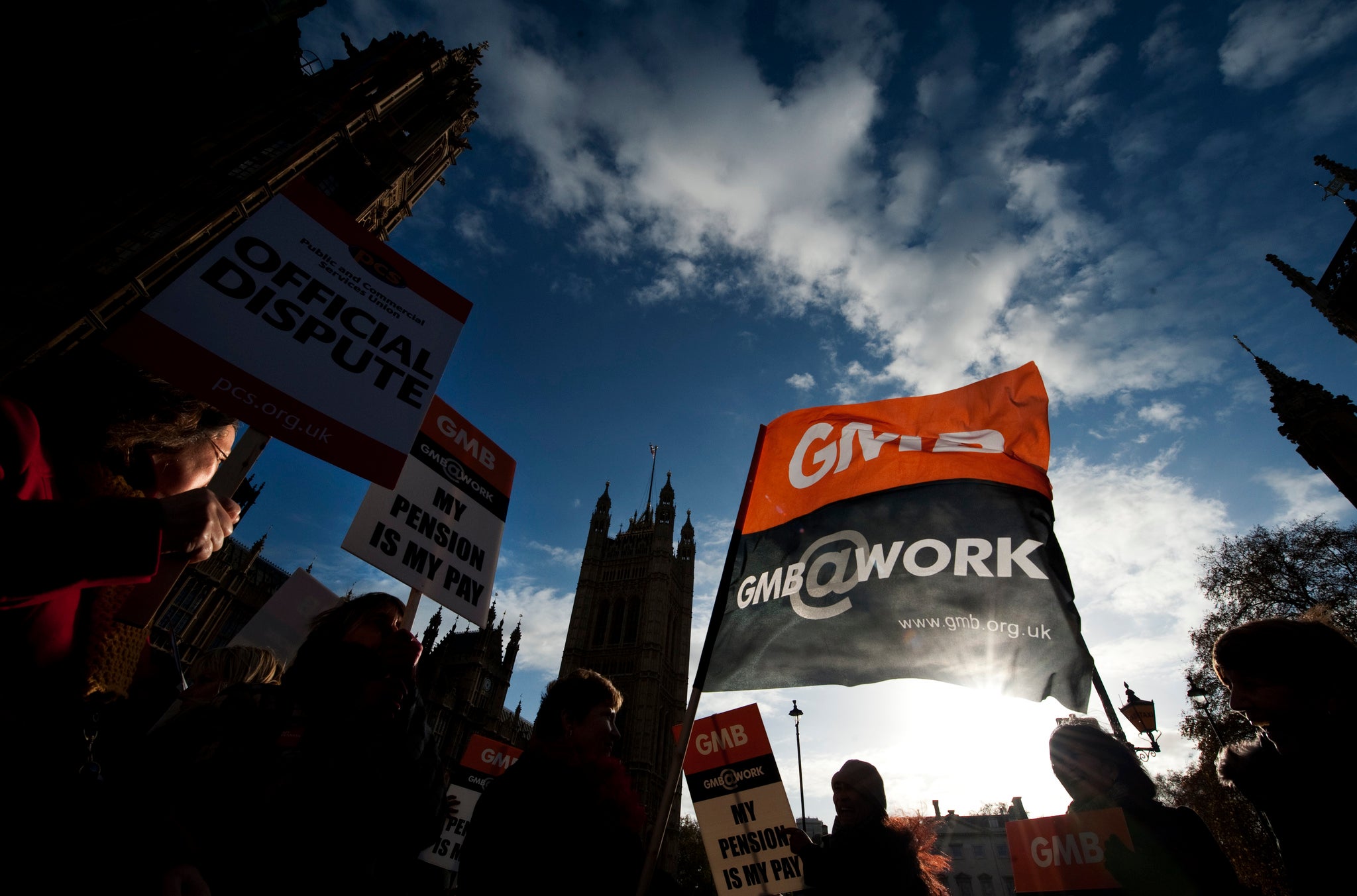If you want to solve wealth inequality, then you can start by giving trade unions their power back
The decline of the unions and the rise of the super-wealthy is no coincidence

Rising inequality has been climbing the political agenda for some time, and thanks to pioneers like Richard Wilkinson and Kate Pickett - authors of groundbreaking 2010 work The Spirit Level - there has been a gradual political realisation that massive wealth inequality in and of itself is damaging to the social fabric, regardless of a nation’s poverty levels.
Now the Centre for Labour and Social Studies (Class) has released a new paper by Wilkinson and Pickett, entitled “The importance of the labour movement in reducing inequality.”
The paper contains research not featured in The Spirit Level and is the first major intervention on the emerging inequality debate examines the role of trade unions as institutions which have a major influence on British politics.
The paper comes at an interesting time: less than a week after the ONS released statistics showing that the wealth of the richest fifth has increased while everyone else’s has fallen; and less than a month after Thomas Piketty spoke at an event hosted by Class about his ground breaking book, Capital in the Twenty-First Century.
Until now, the most popular solutions to wealth inequality have involved some kind of wealth redistribution: Oxfam has backed a Robin Hood Tax, which is a tax on financial transactions; Piketty’s most famous and controversial solution is a global wealth tax.
Both of these ideas will undoubtedly go a considerable distance to resolving extreme inequality, but both seem like shutting the stable door after the horse has bolted. Neither ensure that societies don’t enter a position of extreme wealth in the first place. As Wilkinson and Pickett put it in their paper, “A much more fundamental approach to reducing inequality is to reduce difference in people’s incomes before tax.”
Wilkinson and Pickett examine a century of data, and conclude that there is an undeniable and strong connection between strong trade unions and a significant decline in wealth inequality. The authors observe, “Inequality goes through a U-shaped pattern of change during the twentieth century.”
Across 16 OECD countries between 1966 and 1994, they note that “as trade union membership declined, inequality increased.” These patterns are not simply a result of trade unions achieving wage increases for their members (although that work is obviously important), it is a sign of a strong political left, and left-wing ideas gaining traction in the mainstream.
As Wilkinson and Pickett put it, “it is a mistake to think that the main changes in inequality have resulted simply from impersonal market forces rather than from the outcome of political and ideological processes.” Political forces were evident behind the reduction of income inequality in Britain during the two world wars, and in the earliest development of welfare systems under Bismark.
It’s time for a change in the interaction between unions, the government and employers. This must start with the repeal of the Trade Union Act of 1984, which placed the most restrictive regulation on trade unions in Europe. We must ensure the freedoms of trade unions in Britain are in line with their European counterparts, so that trade unions can freely argue for ideas that will benefit working people and reduce inequality.
On a practical level, there must be an increase of employee representation on company boards, and expanding the share of the economy made up of mutual, cooperative and employee-owned companies. Evidence suggests that more democratic companies tend to have smaller pay ratios amongst their staff. The Mondragon group of cooperatives in Spain, which has annual turnover of over £13bn, has an average pay ratio of 1:5. In the FTSE 100, on the other hand, the average CEO’s pay packet was 300 times higher than that of the average worker.
The problems created by soaring inequality are linked in such a way that solving one paves the way to solving all the others, and each left unsolved exacerbates the others. It is impossible for the majority to live sustainable and healthy lives in a climate of soaring international inequality. It is time to create a labour movement which has the social and political influence to minimise inequality and create a fairer and more sustainable future.

Join our commenting forum
Join thought-provoking conversations, follow other Independent readers and see their replies